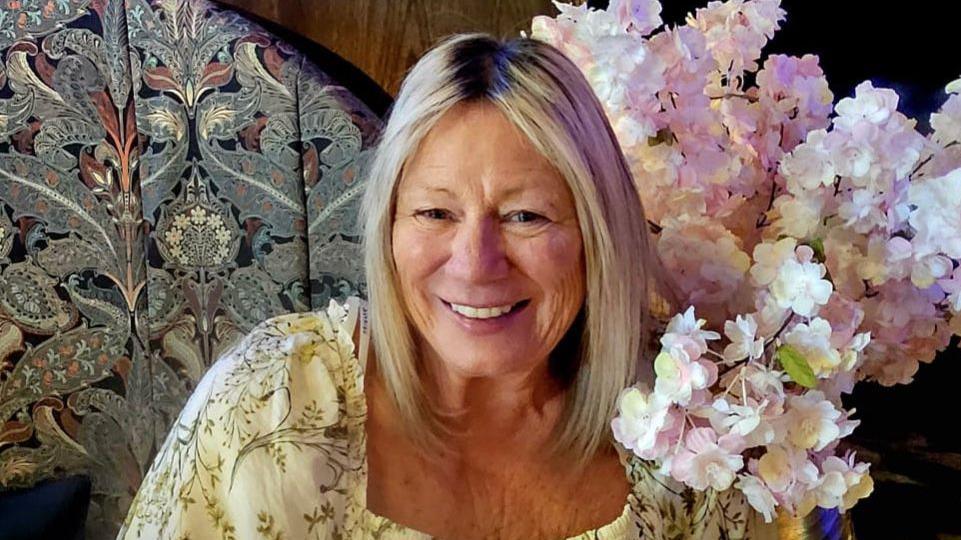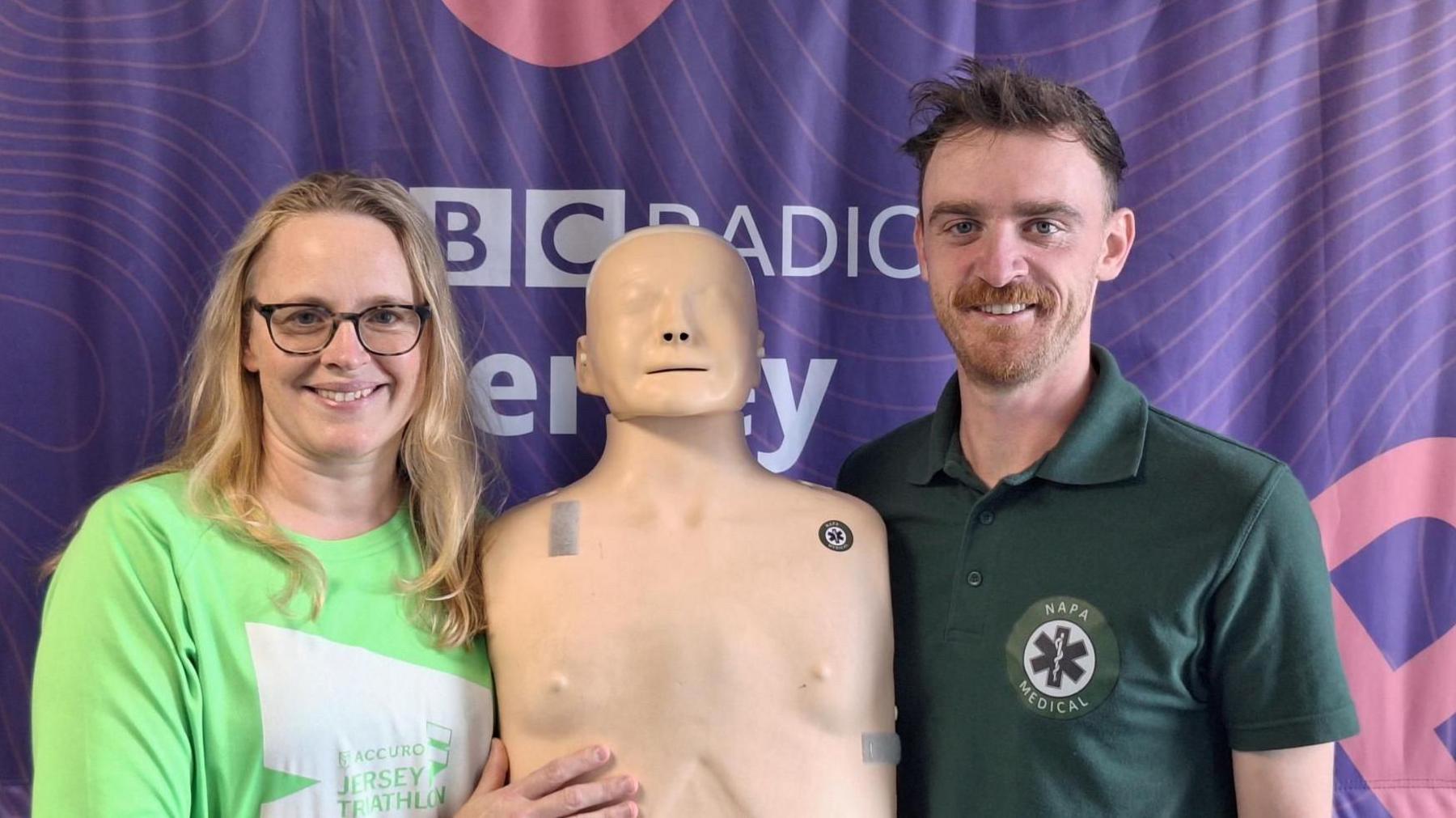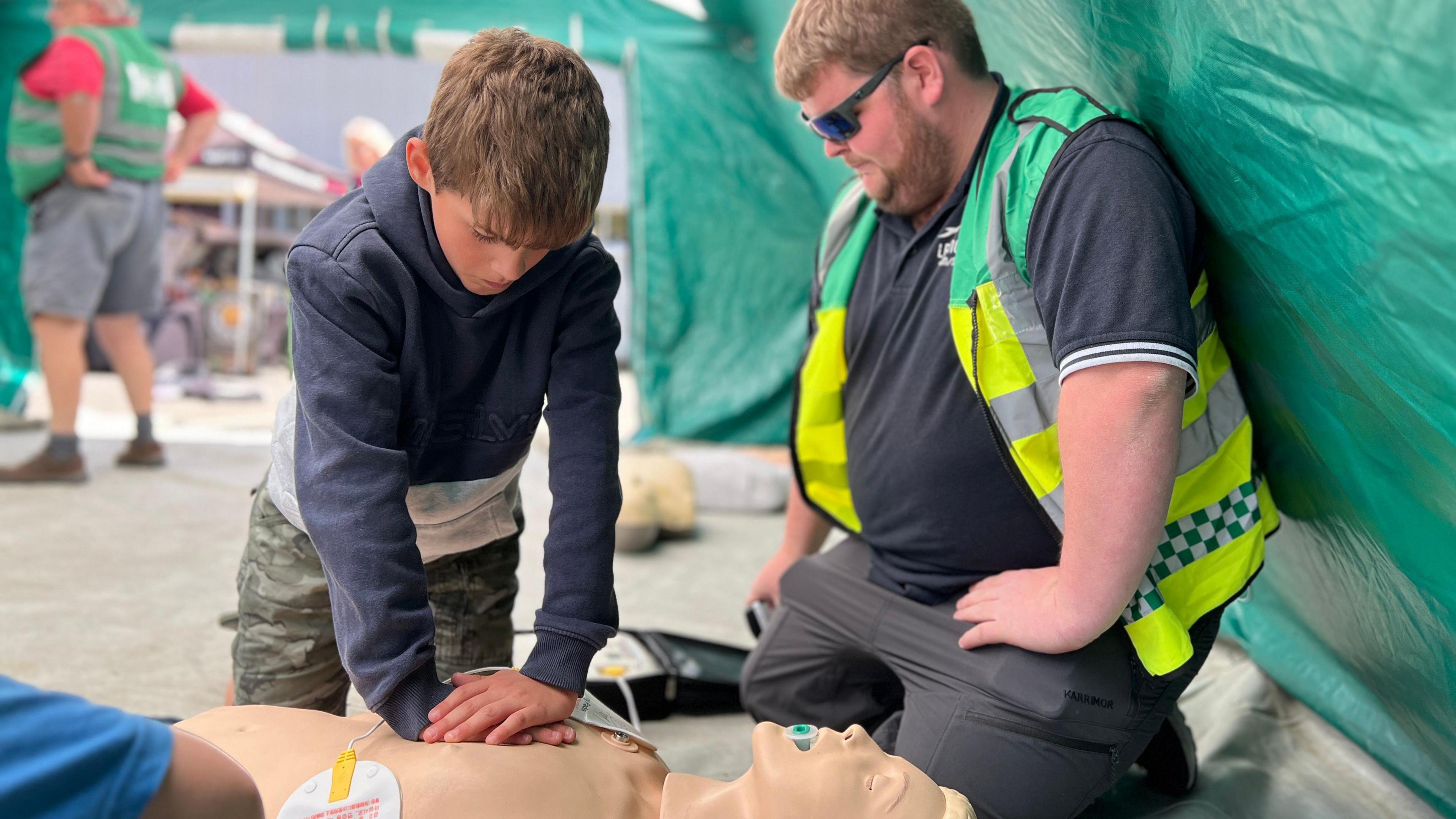'My knowledge of cardiac arrests saved my life'

About eight years ago Tania Hanson had a cardiac arrest
- Published
A nurse who had a cardiac arrest eight years ago said having knowledge of what to do saved her life.
Tania Hanson said due to her job as a nurse she knew the symptoms and procedures.
Ms Hanson said she felt "very lucky to still be here and talk about it, even thought it was a horrendous experience".
Thursday marked Restart a Heart Day, and experts in the Channel Islands offered sessions for islanders on how to resuscitate patients and save lives.
The nurse from Jersey said she started experiencing symptoms on her way back from shopping.
She said she felt a chest pain and collapsed outside her flat.
"Luckily there were a couple of people who came to my aid quickly and I regained consciousness and asked the bystanders if they could call an ambulance as I thought I was having a heart attack."
She said 15 seconds after going into the ambulance, she went into cardiac arrest.
"I was in the right place at the right time and they were able to initiate CPR straight away.
"I had one shock from the defibrillator and that brought me back to the land of living.
"I consider myself very lucky to still be here and talk about it, even thought it was a horrendous experience."
'CPR saves lives'
A medical expert in Jersey said every minute CPR is not performed on a heart attack patient, their chances of survival are reduced by 10%.
"In Jersey it takes roughly six minutes and 41 seconds for an ambulance to respond [to this kind of call]", said Nathan Judge, director of NAPA Medical.
"If someone is in a cardiac arrest that's the response they will get. Each minute that CPR isn't undertaken you lose 10% of your chances of survival.
"So at six minutes 41 secs you'll be looking at about a 60% decrease in survival rates for people on the island."
'Valuable skill'
Ms Hanson said she wanted to encourage people to learn CPR.
"With all my training and knowing the symptoms, I think it did help me to start thinking through the stages of what should be done, i.e. call the ambulance.
"I think anybody should take on learning CPR - the younger the better.
"In my case it was invaluable, if anyone is a witness to somebody collapsing and can initiate CPR, it proves the quicker it's started the more chance of saving a life.
"It's a valuable skill for anybody to take on board and save lives."
The British Heart Foundation said there was a free online training tool, external for people to learn CPR.
The Jersey Heart Support Group raises funds and supplies defibrillators for use across the island.
Follow BBC Jersey on X, external and Facebook, external. Send your story ideas to channel.islands@bbc.co.uk, external.
Related topics
- Published26 July

- Published27 May 2024
